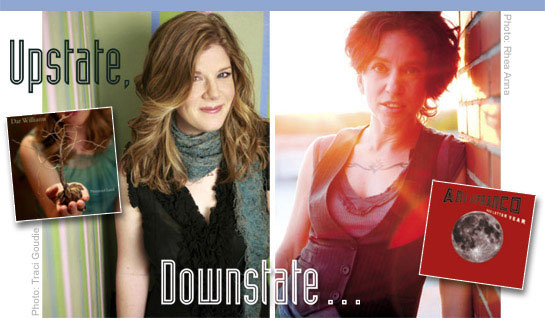
DAR WILLIAMS
Her voice teacher convinced her to perform her own songs at coffeehouses and clubs around the city. Williams relocated to Northampton, MA because she felt the laidback folk scene there better suited her. She released her first full-length CD, Honesty Room, in 1993, to high praise from fans, critics and indie label Razor & Tie, which signed her and reissued the album a year later. Razor & Tie exposed her music to a larger audience, including Joan Baez, who invited Williams to tour with her.
Williams’ subsequent albums, Mortal City (1995) and End of the Summer (1997), received strong reviews and strengthened her fan base. She became a highly regarded act at many festivals and began recording her fifth album, The Beauty of Rain, while on tour. Williams received support from the music community, performing with Alison Krauss, Chris Botti, members of Dave Matthews Band and Béla Fleck.
Dar Williams released Promised Land this year (see review in August/September On the Record), an ambitious and expansive set of songs. She continues to be a seminal figure on today’s folk scene with her unique, insightful songwriting style and artistic integrity.
ANI DIFRANCO
Ani DiFranco, born September 23, 1970 in Buffalo, NY, was encouraged by her guitar teacher to perform her first coffeehouse show at age nine. At 14, she started writing her own songs and, a year later, toured the Buffalo folk club circuit. By 19, with over 100 original compositions under her belt, DiFranco moved to New York City to pursue her music career. Spurred by requests from fans, she decided to record and sell 500 copies of her self-titled cassette. When her tapes sold out almost instantly, DiFranco founded her own label, Righteous Babe Records, to better distribute her music. A year later, in 1991, she toured the country in her Volkswagen, gaining a cult following through her music and punk-like image.
As she recorded a new album and performed over 200 shows each year, DiFranco’s fan base grew, as did her indie record label. She turned down all major label offers in favor of her “DIY” method, and with the release of 1995’s Not a Pretty Girl, gained mainstream media attention. Her high-charting, critically acclaimed Little Plastic Castle followed soon after. Never slowing her creative output, DiFranco earned her first Grammy Award for Best Recording Package in 2004 with the jazz and funk-infused Evolve. Her latest release, Red Letter Year, celebrates life and love and tackles timely political issues (see review in On the Record).
DiFranco’s music is noted for its autobiographical approach and social candor. A staunch feminist, she fearlessly dives into the difficult subjects of racism, sexism, gay rights and abortion with empathy and anger, her songs exuding an empowering attitude. DiFranco was the first musician to receive the “Woman of Courage Award” from the National Organization for Women in 2006. Though self-dubbed the “Little Folksinger,” Ani DiFranco has made a big impact on the music community with her ability to speak out against injustice and the savvy with which she maintained her complete creative freedom.
![]()
Elmore: What are you listening to right now?
Dar Williams: I’m listening to Dan Zanes’ Sea Music, my son’s favorite. I really think he is Pete Seeger with rock ‘n’ roll hair. I’m sort of in a post-album thing where I can start listening to other people’s music again. What I’m listening to is Patty Larkin’s new album, Watch the Sky.
Ani DiFranco: My new friend Kimya Dawson. She’s awesome; we just did some shows together and I fell in love with her songs.
EM: What was the first record you ever bought?
DW: The Who—I’m not even remembering which one. It might have just been Who Are You. That’s a 33. If we’re talking 45s, I think my first 45 was David Soul’s “Don’t Give Up On Us, Baby,” which is so beautiful, it’s as iconic of the ’70s as an Adidas T-shirt.
AD: Purple Rain, I think I bought it on cassette.
EM: Where do you buy your music?
DW: iTunes, and a lot of my music comes from my friends and through my friends. The Nields have a new album that’s called Sister Holler that I loved, and I got it from them and I sang on it. When you love an album, the artwork sears itself into your brain and iTunes doesn’t allow that. That’s the only problem with not buying in a record store.
AD: Record stores still, indie record stores. I’m in Madison, Wisconsin today and yesterday we had the day off, and I was pleasantly surprised to find several indie record stores. Now that most of them are gone it’s very hard for me. I don’t have an iPod so I still buy records.
EM: What was the first instrument you played?
DW: I played clarinet for three months, quickly segued to the guitar.
AD: Piano, I guess.
EM: What brought you to the instrument you now play?
DW: My mother was sitting in bed as she was every night of her life with a glass of milk, Fig Newtons and The New York Times, and she said, “Dar, would you like to play the guitar like your sister Julie?” It was one of ten times in my life when I said “Yes” before I could say “No.” Many important moments since have been about saying “Yes” before I could say “No.” If I thought about it, I would have been too intimidated ’cause Julie was quite the player and she was sixteen and I was ten. I headed off to camp and brought my guitar and played around campfires. The counselors, they made me feel like a rock star and I could play maybe six chords.
AD: I don’t remember. I just remember when I was nine I said I wanted one and I meant it. I don’t remember, honestly, where that idea came from.
EM: Who would you like to write with that you haven’t?
DW: Well, all of the musicians I’ve encountered, but basically anybody from Canada. I have yet to meet a person from Canada who isn’t a musician in some way or another. I love Sarah Harmer, Ron Sexsmith, Jann Arden, Jane Siberry, Ferron. It’s like, is it that the water you drink has been purified through higher mountains than ours? A friend of mine from Canada said, “For every one person like this that you see there are 12 who just don’t do it for a living.” It speaks to something that’s in their culture in terms of the respect for music and storytelling. It’s like going home when I go there. So instead of embarrassing myself I will just say Canadian writers.
AD: Greg Brown, we’ve been talking about it for years, collaborating on making songs together, but it’s hard to do when you never see each other.
EM: What musician influenced you most?
DW: Paul Simon was the biggest, because he was part of a world with Judy Collins, Joan Baez, Leonard Cohen and Pete Seeger, who were writing and singing music they really thought was important—words were important and music was this big part of our civilization. I have a lot of reverence for music because of that movement. Paul Simon specifically had a foot in New York and a foot outside New York. Sometimes he was inside, sometimes he was looking in. And my growing up outside of New York City and feeling both on the inside and the outside of it and the tension of feeling both—Paul Simon gave that luminal space a really high bar.
AD: Oh geez, I don’t know that there’s one that has guided me exclusively, there’re just so many people who’ve influenced me in different ways. So I could throw out a handful of names and even that would be an oversimplification. I would say that my musician friends that I hang out with, Maceo Parker, Utah Phillips…let’s just throw those two disparate names out there and then say “et cetera.”
EM: What was the song or event that made you realize you wanted to be in music?
DW: I had gone back and forth between writing plays and writing songs and I discovered that I was in a music town, Boston, and that local theater there was heavily panned. If you wanted to make music you stayed in Boston; if you wanted to do theater, you went to New York. Then I actively chose.
One night I wanted to quit, and the moment I said “I’m done,” this little film loop went through my head of all the humiliations and hardships of writing songs, driving on foggy Massachusetts back roads to open mics, watching my boyfriend hitting on his new girlfriend and even the difficulties I had with my guitar lessons. I suddenly realized that I had actually sacrificed and had my trials with this. When I realized I had paid some dues and survived it, I thought, “I can do more of this; it didn’t kill me.” And soon after, about a year later, I was able to start doing it full time.
AD: I don’t think that there was a song or event when a shaft of light came down. I just started playing music at nine and started getting out in bars and I just always did it and eventually, sort of gradually gravitated that way. And put down other forms of self-expression that I was into. I was always a very creative kid and I found music to be the type of creativity that was most incorporated into the world, into people’s lives. When I was a dancer it was like we were living in our own world and dancing for each other. And the same thing in a way for me with making art when I was young. I just like the way that music happens on the street, in bars and around the table.
EM: Who would you like in your rock ‘n’ roll heaven band?
DW: I think I would be in the old Fairport Convention. Fairport Convention circa ’69 because it just sounded like there were these incredible voices, Richard Thompson playing guitar, and Sandy Denny and Ian Matthews and it didn’t just sound like music, it sounded like a movement or a family. That is high romance for me, so I think I would just embed myself in that band and happily stand on the side and play tambourine.
AD: Oh boy, I’d have to think about this. I’m not good at pulling names out of the air. I would love to have me some David Rollins and Bo Ramsey on guitar, back-up. My friend Todd Sickafoose on bass forever and always, who’s actually in my band now but is also one of my musical heroes. Dream band, dream band…let’s see, Maceo on sax and Roy Hargrove on whatever he wants to play. Maceo and Roy in the horn section and Alice Coltrane on piano. Okay, now I’m really taking it outside—I adore her though, I think Alice is awesome. Geez, a drummer, drummers are tricky beasts. See, I can only get so far…let’s add some strings in there, we’ll get orchestral. We’ll just start there.
EM: What’s your desert island CD?
DW: I think I’d either go for Joan Baez’s David’s Album or Judy Collins’ Whales and Nightingales. Or Jessye Norman singing Strauss: Four Last Songs, but I think that one is so full of sadness and drama I would just feel sorry for myself and die of melancholy.
AD: If I was stranded and I could only bring one, I would say Jon Hassell’s Fascinoma. I adore Jon Hassell and his music and that’s probably still my favorite of his records, the one I have worn out many copies of. His music is many things, but that record in particular is very meditative and serene, and I think if I was on a desert island that would probably suit me best.


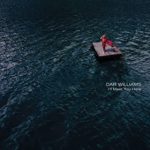
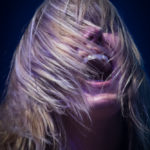
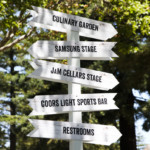
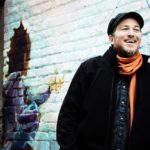

Be the first to comment!